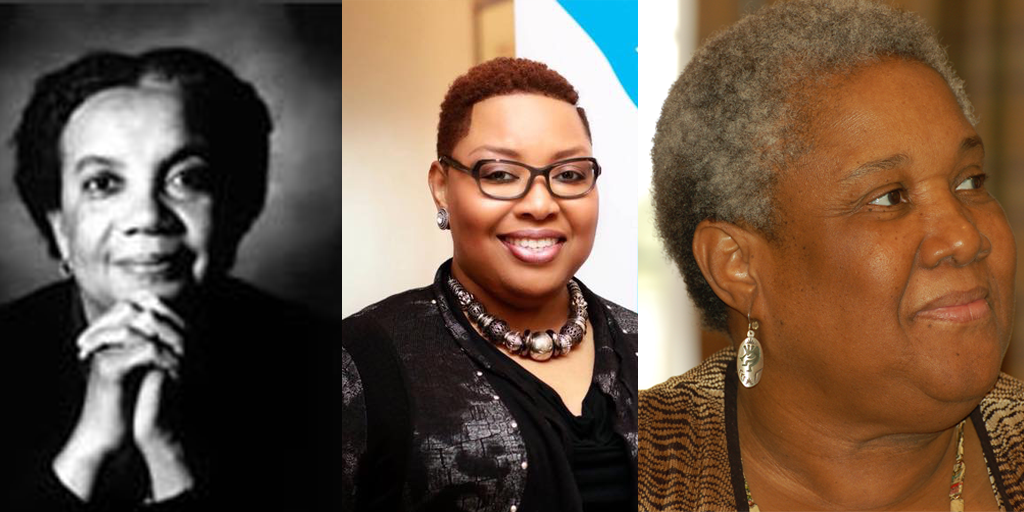Abortion rights, women of color, and LGBTQIA+ people are under attack. Pledge to join us in fighting for gender justice.
Changing the School System’s Approach to Discipline

 Close your eyes. Imagine yourself walking into school one morning. You are excited. Just yesterday, your mom or your dad took you to get your hair done. You feel amazing about the way you look. You reach your classroom and settle down for the normal school day routine. Suddenly, you are asked to step outside the classroom. You are confused. What did you do wrong? When you reach the principal’s office, he or she says it is your hair. The hair that you were just moments ago in the middle of admiring. You are told your braided hair extensions violate the dress code. The next day your parents are called in. They defend you and tell the school administrators there is absolutely nothing wrong with the hair. But it has already been decided. Until you remove those extensions, you cannot participate in your extracurriculars, you are banned from prom, and you have a good chance of being suspended.
Close your eyes. Imagine yourself walking into school one morning. You are excited. Just yesterday, your mom or your dad took you to get your hair done. You feel amazing about the way you look. You reach your classroom and settle down for the normal school day routine. Suddenly, you are asked to step outside the classroom. You are confused. What did you do wrong? When you reach the principal’s office, he or she says it is your hair. The hair that you were just moments ago in the middle of admiring. You are told your braided hair extensions violate the dress code. The next day your parents are called in. They defend you and tell the school administrators there is absolutely nothing wrong with the hair. But it has already been decided. Until you remove those extensions, you cannot participate in your extracurriculars, you are banned from prom, and you have a good chance of being suspended.
Now open your eyes. This is not your story—at least not this time. It is the story of Deanna and Mya, two Black girls from Mystic Regional Valley Charter School in Northern Boston. This is not the first instance of unjust school disciplining of girls of color, and it is certainly not the last.
As data from the U.S. Department of Education’s Office for Civil Rights shows, Black girls are more likely to be suspended than any other group of students other than Black boys. Nationwide, Black girls are 5.5 times more likely than white girls to be suspended from schools across several states. In the District of Columbia, Black girls make up 73% of girls enrolled in schools, and 94% of all girls suspended. This is not a result of worse behavior in classrooms, but the result of racist stereotyping of Black women as aggressive or hypersexual. Half of Black girls’ suspensions are for minor offenses such as violating the dress code, chewing gum, or talking back to a teacher. These behaviors don’t pose threats to classmates or disrupt teaching. But they challenge society’s idea of femininity– white femininity.
As a result, these girls are seen as disruptive and unfit for the classroom environment.
Even when students’ behaviors rise beyond these minor, subjective offenses, there are many creative solutions schools can employ other than immediately suspending or expelling students of color. Schools can start teaching conflict resolution practices, yoga, or meditation, all of which target the issue head on and are valuable skills for later life as well. Schools could also bring kids in the classrooms together to solve problems as group. Or, as an alternative to focusing on the punishment, schools can start focusing on prevention. Finally, instead of spending money on law enforcement officers, schools can hire more counselors who have experience with kids going through issues.
The stakes are just too high to push girls out of school. Studies have shown being suspended once increases a child’s chance of dropping out of school.
And who would want to go back to school after being punished for embracing who they are? After being handcuffed in kindergarten (Salecia Johnson)? After being body-slammed at 15 for trying to stop a sister from starting a fight (Jasmine Darwin)? After being flipped out of a chair in class for doing something vaguely disruptive (unnamed student at Spring Valley High School, S.C.).
Unless we are willing to make a change in school disciplining techniques, girls like Mya and Deanna are going to continue to be banned from being a part of normal school life.
But change is possible. In fact, change happened. Deanna and Mya stood up for themselves and, together with their parents, lawyers, and community activists, forced the school to drop their ban on hair extensions.
We can all be advocates for this issue in some way. Learn about how to create change in your school with NWLC’s Let Her Learn Toolkit and reach out to NWLC if you need legal assistance.




